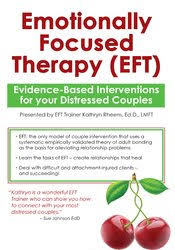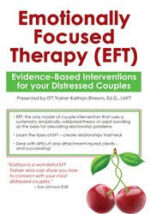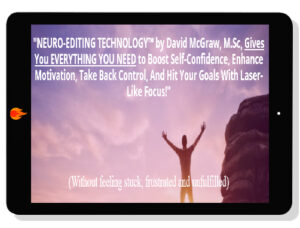Attachment distress and the resulting arguments between partners is one of the most powerful forces in our clients’ lives. This distress is emotionally disruptive, hard to contain, and unpredictable for clients and clinicians alike.
Kathryn Rheem – Emotionally Focused Therapy (EFT), Evidence-Based Interventions for Your Distressed Couples
Emotionally Focused Therapy (EFT) is an empirically validated approach grounded in attachment theory that provides a clear road map for helping partners to reconnect, repair and rebuild their bonds (Johnson, 2004).
In this recording, EFT trainer Kathryn Rheem, Ed.D., LMFT, colleague of Dr. Sue Johnson, will teach you a step-by-step procedure for helping couples move from negative patterns of interaction to greater openness and deeper intimacy with each other.
Attachment distress and the resulting arguments between partners is one of the most powerful forces in our clients’ lives. This distress is emotionally disruptive, hard to contain, and unpredictable for clients and clinicians alike.
Emotionally escalated couples are frequently our most challenging clients. Emotionally Focused Therapy (EFT), based on adult attachment, offers a clear map to work with and shift escalated couples. Reactive emotion, a hallmark of attachment distress, is fast-moving, hard to contain, and keeps couples stuck in a negative pattern. Accessing and sharing vulnerabilities, a key to creating healthy attachment, can look easy but is challenging. Sharing vulnerabilities with each other creates the bonding moments needed to re-structure their bond.
Communicate “the laws†of human bonding and how the laws operate in adult love relationships for purposes of client psychoeducation.
Assess for attachment injury and trauma history in presenting couples as it relates to case conceptualization.
Summarize the stages, steps and interventions of EFT to be utilized in a clinical setting when working with couples.
Articulate the “stuck†places couples encounter that perpetuate negative cycles and emotional disconnection in love relationships, and utilize this information to improve clinical outcomes.
Increase treatment effectiveness by adapting the EFT model to different clients, including escalated, traumatized, and depressed partners.
Utilize clinical exercises to shape new bonding interactions for couples that can redefine connection, forgiveness and change working models of attachment.
Would you like to receive Kathryn Rheem – Emotionally Focused Therapy (EFT), Evidence-Based Interventions for Your Distressed Couples ?
State of Couple Therapy: The New Science of Attachment
The map to basic relationship emotions and needs
Understand and contain distance and distress
Shaping responsive bonding
Understand love relationships – invaluable to the therapist
Emotionally Focused Therapy (EFT): Structure, Moves and Interventions
The three stages of EFT
De-escalation
Restructuring Attachment
Consolidation
Key change events
Interventions: Experiential and Systemic
Reflection of emotional process
Validation
Evocative process questions
Deepen and distill emotion
Interpretation – conjecture
Reflecting interactions – feedback loops
Reframing
Shape enactments
Contain enactments that go awry
Tasks of EFT: Outline, Video Viewing, and Exercises
The core tasks of EFT
Build an alliance
Reprocess and distill emotion
Choreographing new interactions
Difficult and Attachment Injured Clients: Discussion and Exercises
Dysregulated, escalated, and shut down, dismissing clients
Attachment injuries (i.e. affairs) – Relationship traumas that destroy trust
A proven model for forgiveness and reconciliation
The New Era of Couple Therapy
Growing into and applying the EFT model
Gaining confidence in EFT – Maximize effectiveness in your practice
Key changes and challenges in the field of couple therapy








